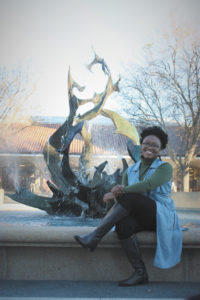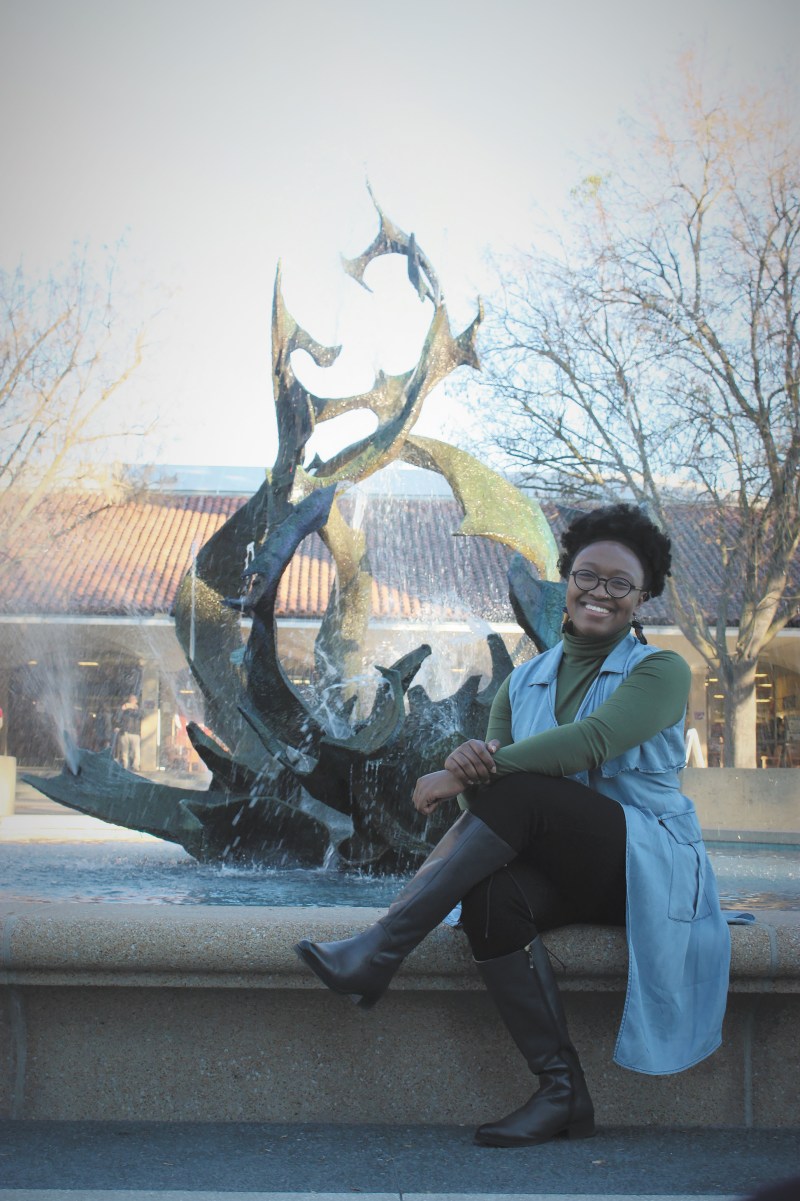This week’s Glamorous Grad Student, Sharese King, is a fifth-year Ph.D. candidate in linguistics. King is interested in social linguistics, especially at the intersection of anthropology, psychology and linguistics. Last year, along with her mentor Professor John Rickford, King co-authored an award-winning paper in the scientific journal “Language” on criminal justice biases towards speakers of African American Vernacular English (AAVE) and other dialects. The Stanford Daily spoke with King about her three-year research experience and inspiration for the paper.
The Stanford Daily (TSD): Why are you pursuing linguistics as field of study?

Sharese King (SK): For me, at least, growing up I always had a fascination with writing as well as with science, and doing linguistics combines both my enthusiasm and my passion for the English language with the methods used in science, investigative tools and things like that. So, I felt like it combined both of my interests.
TSD: What did you study for your award-winning article?
SK: The article is actually about the speech of Rachel Jeantel, who was the key witness in the trial for George Zimmerman, the man who murdered Trayvon Martin. The article is really about exploring how speakers of a stigmatized dialect are perceived on multiple levels in a courtroom. [What] we’re trying to do is use Jeantel as a lens to say, look, yes this person was discredited for the way she spoke both [by] people online as [by] people on the jury — there were comments made about her speech not being credible. So we’re using her as a lens to say how often does this happen in courtrooms across America, how often are people who don’t speak this imagined, standard English penalized in some sort of way for not knowing that particular dialect.
TSD: What inspired you to pursue this topic?
SK: It’s a co-written paper. The co-author is my mentor and professor, John Rickford. He was inspired to do the work, was writing blog posts about it, and sent out an email to the department saying, “Hey, if anybody else is interested in working on this, I’d be interested in working with you outside of class.” And so, I sent an email expressing my interest because I saw the response Jeantel got publicly when she was giving her testimony. The project is about three years in the making. We’ve been working on it for a long time ,and I actually have a separate research agenda on top of this paper [apart] from this, so it’s definitely a labor of love, but one we felt was very important.
TSD: What kind of research did you conduct?
SK: In linguistics, we really care about people’s speech, so great sound recordings are what we aim to collect whenever we want to do some analyses. There are other things linguists can use such as written text, but for the kinds of things we were interested in, recordings were best. We took Jeantel’s recordings from the trial, her testimony, which was about six hours long. We took the interview data from shows like “Piers Morgan,” when that was still a thing, as well as background deposition data, things that weren’t immediately available for the public, but that we were able to get ahold of.
TSD: Did you intend to publish? How did that intention affect your research?
SK: We aimed to have publication come from this work. Originally, we had another destination in mind. Professor Rickford gave the presidential address for the Linguistic Society of America on this subject and from that we were able to turn it into a publication for “Language,” which is our top-tier journal, like a “Nature.” It really is a call to linguists to say, knowing the potential consequences and ramifications for speakers of stigmatized dialects, we have to make sure that we step in in whatever ways we can. There is a list of suggestions at the end of the article. It’s a call to linguists to ask: How can we step up, how can we do more than sit in our offices and write papers for each other, how can we have a greater impact on society? And, despite the fact that our audience is mainly linguists, many people who are not linguists have found it to be useful and rewarding.
TSD: How did it feel to win and to accept the award?
SK: I am very young in my career, so getting a paper in “Language” is something that I would normally expect from someone later on in their career, someone who has made more discoveries. Not to say that younger professors get it, but usually professors get it. So, for me, it did feel very surprising that we got it, but it sets a precedent that some of this more social-political work can be publishable in these places.
It was definitely a surprise, but a welcome one. I am happy that people responded to it well and like the work we are doing. I hope that it continues, that we see linguists being more involved in some of the social-political issues happening in our time.
I’ve written papers for peer-reviewed proceedings, but never in a peer-reviewed journal of this caliber. This paper is more political in my work. I have some work that’s more psychological and anthropological, interested in how people use linguistic variables to construct their identities. I talk this way because I’m like this, because I’m from here and how people conceive of themselves of speakers of their language.
Originally, I hadn’t planned to go to the conference this year because I didn’t have any new research to present. So, when I found out about the award, my father was so excited that he bought me a ticket to go to the conference. At the last minute, I went down and was able to enjoy that. It was an honor to receive this award with my co-author who had mentored me in a number of ways and we worked really hard on this.
TSD: Where do you see the future of interdisciplinary linguistics heading other than analysis and translation?
SK: I see a lot of corporations hopping on this wave of getting to know certain dialectical patterns in order to sell a product or market to a certain kind of people. There’s a paper out of the University of Massachusetts about learning how to figure out which of their speakers who use Af-Am English are African-Americans based off of patterns in their speech and writing programs for that. This kind of advanced-level marketing is where people are trying to move, trying to get better at understanding each other.
TSD: What’s in store for you next?
SK: I’m currently in the dissertation phase of my Ph.D. process, so my plan is to hopefully graduate in 2018 and go on to be a professor.
Contact Josh Wagner at jwagner4 ‘at’ stanford.edu.
